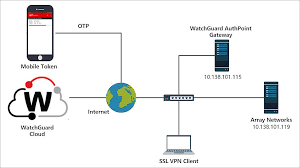Understanding SSL VPN
SSL VPN, which stands for Secure Socket Layer Virtual Private Network, is a technology that allows users to securely access a private network and its resources through a web browser or dedicated client application. Unlike traditional VPNs that require specialised software and configurations, SSL VPNs provide a more user-friendly and flexible solution for remote access.
How Does SSL VPN Work?
SSL VPN works by establishing an encrypted connection between the user’s device and the corporate network using the SSL protocol. This encryption ensures that data transmitted between the user and the network remains secure and protected from potential threats.
When a user initiates an SSL VPN connection, the client device authenticates itself to the VPN gateway using digital certificates or other authentication methods. Once authenticated, the user can access internal resources such as files, applications, and services as if they were physically present on the corporate network.
Benefits of SSL VPN
- Security: SSL VPNs provide robust encryption to protect data transmission over unsecured networks, reducing the risk of interception or tampering.
- User-Friendly: Users can easily connect to the corporate network using a standard web browser without requiring complex configurations or software installations.
- Flexibility: SSL VPNs support various devices and operating systems, allowing users to connect from different platforms securely.
- Scalability: SSL VPNs can accommodate a large number of concurrent users without compromising performance or security.
- Auditability: SSL VPNs offer logging and auditing capabilities to monitor user activities and maintain compliance with security policies.
Conclusion
In today’s interconnected world, remote access to corporate networks is essential for enabling productivity and collaboration. SSL VPN technology provides a secure and convenient way for users to connect to their organisation’s resources from anywhere while maintaining data confidentiality and integrity. By leveraging SSL VPN solutions, businesses can enhance their security posture and empower their workforce with seamless remote access capabilities.
“Comparing SSL and Traditional VPN Solutions: A Comprehensive Analysis”
“SSL VPN vs IPsec VPN: Understanding the Key Distinctions”
4. “An Introduction to
- What are the disadvantages of SSL VPN?
- Is SSL as good as VPN?
- What is the difference between SSL VPN and IPsec VPN?
- What is the SSL VPN?
What are the disadvantages of SSL VPN?
When considering SSL VPN technology, it is important to be aware of its potential disadvantages. One common drawback of SSL VPNs is that they may have limitations in supporting certain legacy applications or protocols that require more extensive network access beyond what SSL can provide. Additionally, SSL VPNs can sometimes introduce latency due to the encryption and decryption processes involved, which may impact the performance of real-time applications. Furthermore, managing user access and permissions in SSL VPN environments can be complex, especially in large-scale deployments, requiring careful configuration to ensure security without hindering usability. Despite these challenges, organisations can mitigate these disadvantages through proper planning, configuration adjustments, and ongoing monitoring to maximise the benefits of SSL VPN technology while addressing any drawbacks effectively.
Is SSL as good as VPN?
When comparing SSL to traditional VPN technologies, it’s essential to understand that SSL (Secure Socket Layer) VPN serves as a specific type of VPN rather than a separate entity. While both SSL and traditional VPNs offer secure communication channels, they differ in their implementation and use cases. SSL VPNs are known for their user-friendly approach, allowing remote users to access network resources through a web browser without the need for dedicated client software. On the other hand, traditional VPNs often require specialised applications and configurations for secure connectivity. Each type of VPN has its strengths and weaknesses, making it crucial for organisations to evaluate their specific requirements before determining which solution best suits their needs.
What is the difference between SSL VPN and IPsec VPN?
When comparing SSL VPN and IPsec VPN, the key difference lies in their underlying protocols and methods of establishing secure connections. SSL VPN utilises the Secure Socket Layer protocol to create a secure connection between the user’s device and the network, typically through a web browser interface. On the other hand, IPsec VPN relies on the Internet Protocol Security protocol suite to secure communication at the network layer, requiring dedicated client software for connection setup. While SSL VPN offers greater flexibility and ease of use for remote access via web browsers, IPsec VPN tends to be preferred for site-to-site connections and network-level security implementations. Each type of VPN has its strengths and is chosen based on specific security requirements and operational preferences.
What is the SSL VPN?
The SSL VPN, or Secure Socket Layer Virtual Private Network, is a technology that enables users to securely access a private network and its resources through a web browser or dedicated client application. Unlike traditional VPNs that require specialised software and configurations, SSL VPNs offer a more user-friendly and flexible solution for remote access. By establishing an encrypted connection between the user’s device and the corporate network using the SSL protocol, SSL VPN ensures that data transmitted remains secure and protected from potential threats. This technology allows users to connect to internal resources such as files, applications, and services as if they were physically present on the corporate network, enhancing security and enabling seamless remote access for individuals working from various locations.

